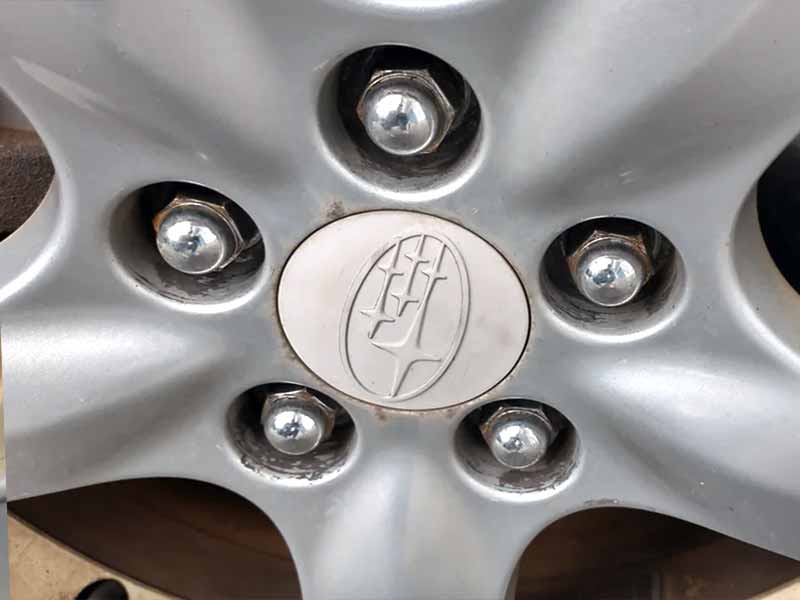Have you ever wondered what those small, often shiny caps on the center of car wheels are for? They’re called center caps, and while they might seem like simple decorative pieces, their role is much more significant than just adding a touch of style to your vehicle. If you’re curious about whether these caps are just for show or serve a real purpose, you’re in the right place to find out.
Are Center Caps Necessary?
Center caps are essential for protecting the wheel hub and bearings from dirt and debris, and they also add an aesthetic appeal to the vehicle. While they don’t significantly impact vehicle performance, they are crucial for wheel maintenance and longevity.
In this article, we delve into the purpose, importance, and various aspects of center caps. We’ll explore how they contribute to vehicle safety, their impact (or lack thereof) on performance, the different types available, and tips for maintenance and replacement
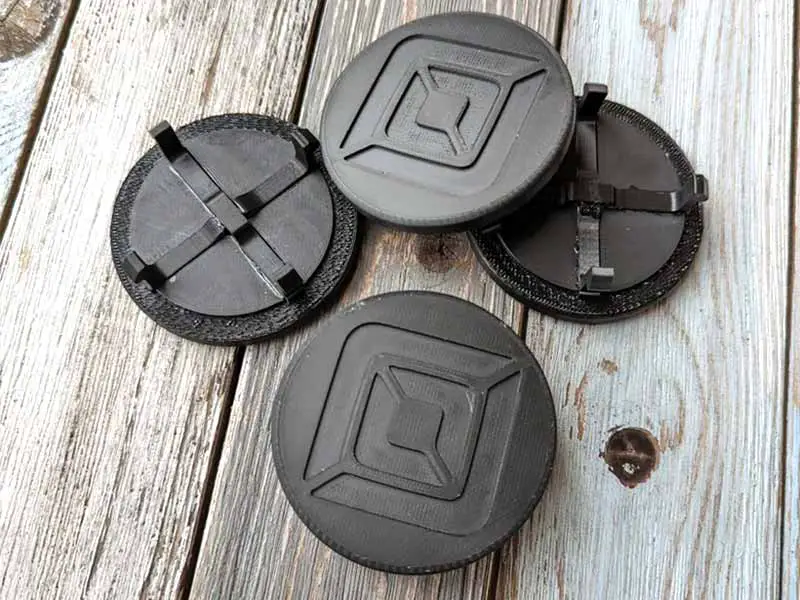
The Purpose of Center Caps
You’ve probably seen center caps countless times, those nifty little covers that sit snugly in the middle of a car’s wheel. But what exactly do they do? Are they just for show, or is there more to these small yet significant components? Let’s dive in and explore the real purposes behind center caps.
Protecting the Wheel Hub and Bearings
- Barrier Against Dirt and Debris: The primary job of a center cap is to act as a shield. It covers the wheel hub and, crucially, the wheel bearings and nuts. Think of it as a little guardian, keeping out all the road grime, dust, and debris that can accumulate during your drives. This protection is vital because if these contaminants get into the hub area, they can cause significant wear and tear over time.
- Preserving Wheel Integrity: By keeping the hub area clean, center caps play a subtle yet essential role in maintaining the overall health of your wheel assembly. This isn’t just about avoiding dirt; it’s about ensuring the longevity of your wheels, saving you from frequent maintenance and potential wheel damage.
Aesthetic Appeal and Branding
- Enhancing Vehicle Look: Beyond their practical role, center caps serve an aesthetic purpose. They provide a clean and polished look to your vehicle’s wheels, often carrying the logo or emblem of the car manufacturer. This might seem like a small detail, but it’s these little touches that complete the overall appearance of a vehicle.
- Brand Representation: For car enthusiasts and everyday drivers alike, the center cap is a way to showcase brand loyalty. Whether it’s the iconic symbols of luxury brands or the classic logos of mainstream manufacturers, these caps add a touch of class and identity to your ride.
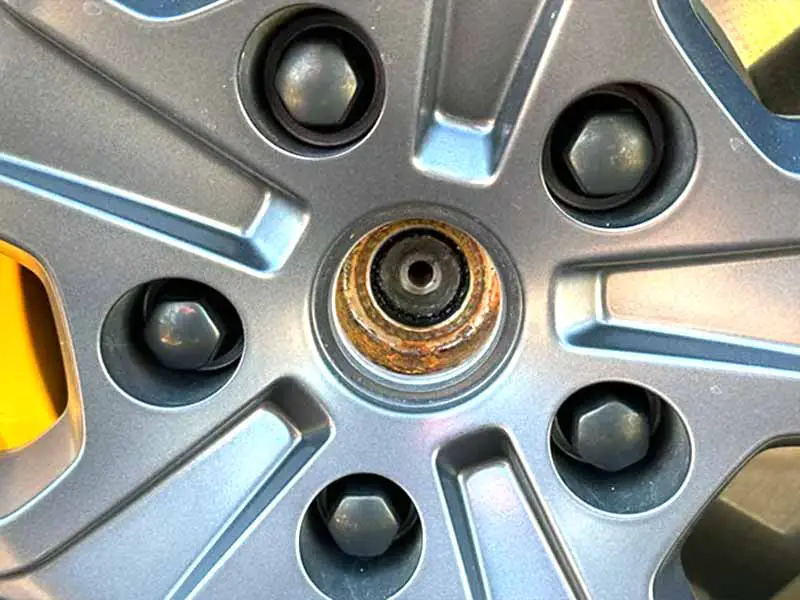
Safety and Maintenance Considerations
While often overlooked, center caps play a subtle role in the safety and maintenance of your vehicle. Let’s unpack how these small components contribute to the bigger picture of your car’s health and safety.
Contribution to Vehicle Safety
- Enhanced Wheel Protection: Center caps add an extra layer of defense for your wheel assembly. By keeping harmful elements out, they help maintain the integrity of the wheel bearings and nuts. This is crucial for the smooth operation of your wheels, which, in turn, directly impacts your driving safety.
- Reduced Risk of Wheel Damage: Imagine driving on a rough road full of debris. Without center caps, your wheel hubs are exposed to potential damage. By shielding these sensitive parts, center caps reduce the risk of unforeseen wheel damage that could lead to safety issues on the road.
The Role in Maintenance and Longevity
- Lower Maintenance Needs: With center caps in place, the amount of dirt and grime that gets into the wheel hub is significantly reduced. This means less frequent cleaning and maintenance is needed, which not only saves you time but also potentially reduces repair costs in the long run.
- Prolonging Wheel Life: By protecting the central parts of the wheel, center caps indirectly contribute to the longevity of the entire wheel assembly. This includes helping to preserve the wheel bearings, which are vital for the smooth rotation and alignment of your wheels.
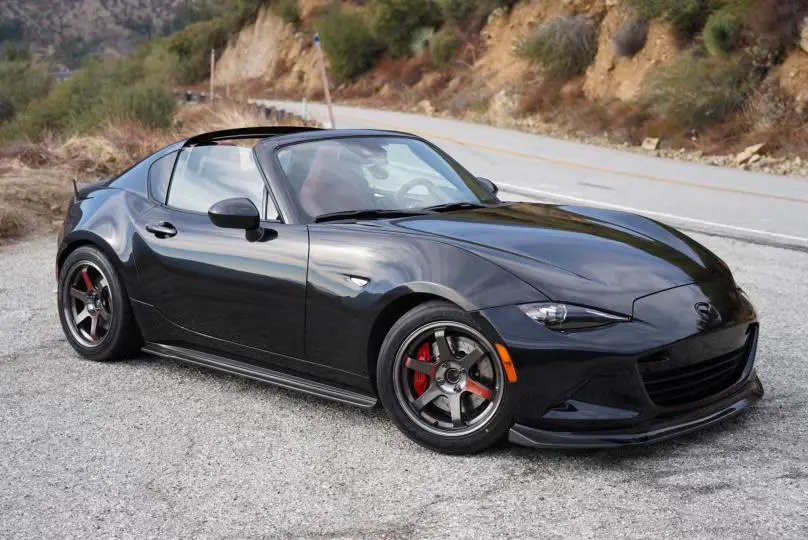
Center Caps and Vehicle Performance
When it comes to vehicle performance, every little detail counts, including the center caps. Let’s explore how these seemingly minor components might influence the way your vehicle behaves on the road.
Impact on Vehicle Dynamics
- Minimal Effect on Wheel Balance: One common misconception is that center caps significantly affect the balance of the wheels. In reality, their impact is minimal. Center caps are lightweight and designed to fit perfectly, so they don’t typically disrupt the wheel’s balance or the vehicle’s overall handling.
- No Significant Changes to Driving Experience: While center caps are crucial for protection and aesthetics, they don’t directly alter your driving experience. You won’t notice a difference in acceleration, braking, or cornering due to the presence or absence of center caps.
Debunking Myths: Center Caps and Performance
- Center Caps Aren’t Performance Enhancers: It’s important to clarify that center caps are not designed to improve your car’s performance. They are there to protect and to please the eye, not to boost speed or efficiency.
- No Impact on Fuel Efficiency: Another myth to bust is the idea that center caps can affect fuel efficiency. Their size and weight are too insignificant to have any measurable impact on how much fuel your car consumes.
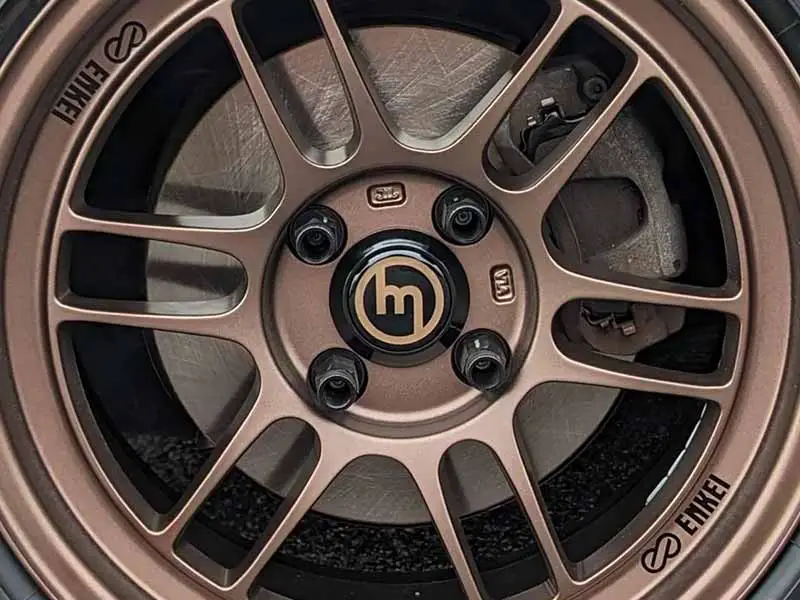
When to Replace or Remove Center Caps
Maintaining the center caps on your vehicle is just as important as any other aspect of car care. Knowing when to replace or remove them can save you from potential issues down the line. Let’s discuss the signs and situations that call for your attention.
Identifying Signs of Wear and Tear
- Visible Damage: Look out for cracks, chips, or fading on the center caps. Such damage not only affects the appearance but could also indicate weakening of the material, making the caps less effective in protecting the wheel hub.
- Loose Fit: If a center cap feels loose or wobbles, it’s a clear sign that it may need replacing. A loose cap can fall off during driving, leaving the wheel hub exposed.
- Corrosion and Rust: Especially relevant for metal caps, signs of rust or corrosion are a red flag. These conditions can compromise the structural integrity of the cap and potentially affect the wheel hub.
Situations Where Removing or Replacing is Advisable
- After Purchasing New Wheels: When you get new wheels, it’s often a good idea to replace the center caps as well, especially if they don’t fit perfectly with the new design.
- Preparing for Off-Road Driving: In some off-road situations, removing the center caps can prevent them from being damaged by rough terrain.
- During Wheel Maintenance: Always remove center caps when performing any maintenance on your wheels. This gives you better access to the wheel components and prevents any accidental damage to the caps.
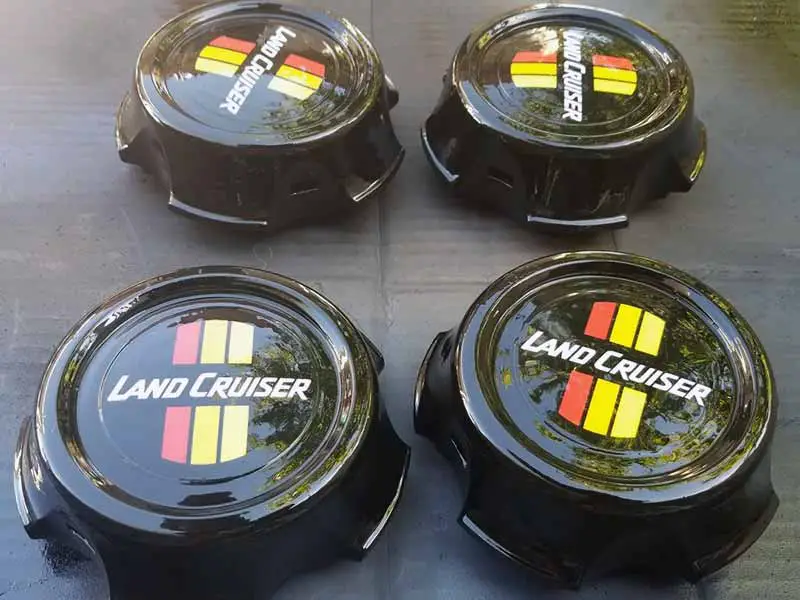
Are Center Caps Universal?
When it comes to accessorizing or replacing center caps on your vehicle, a common question arises: Are center caps universal? The straightforward answer is, not exactly. Here’s why:
- Vehicle-Specific Designs: Often, center caps are designed specifically for certain makes and models of vehicles. This means that a cap made for one car might not fit properly on another. These caps are tailored to fit the design and dimensions of the wheels of specific vehicles.
- Size Variations: The size of center caps can vary significantly. Factors like the diameter, depth, and the clip style can differ from one vehicle to another. It’s essential to know the exact size and type of cap your wheel requires.
- Aftermarket Options: While OEM (Original Equipment Manufacturer) caps are specific to vehicle models, there are aftermarket options available that offer more flexibility. However, even in the aftermarket realm, “one-size-fits-all” is not a standard. It’s crucial to check the compatibility of these caps with your specific wheel type.
- Customization Limits: If you’re considering custom center caps, keep in mind that while they offer a broader range of styles and designs, they still need to match the specifications of your wheels. Customization mainly refers to the aesthetic aspect, not the fit and compatibility.
Resources
Below are some links you may find helpful when learning about tires:
- Tires 101 – Tire Information, Guides, & Terminology – Bridgestone Americas
- Learning Hub: Tire Tips and Tire Education | Goodyear tires
- Car Tires: A Beginner’s Guide – CarGurus
- Tire Help & Advice | Tirebuyer
Final Thoughts
Center caps, often overlooked, play a vital role in protecting your vehicle’s wheel hubs and bearings from harmful elements while adding a finishing touch to your vehicle’s appearance.
Whether you choose standard OEM caps, opt for aftermarket varieties, or go for custom designs, these small components are more than just decorative.
Good luck and happy motoring.
